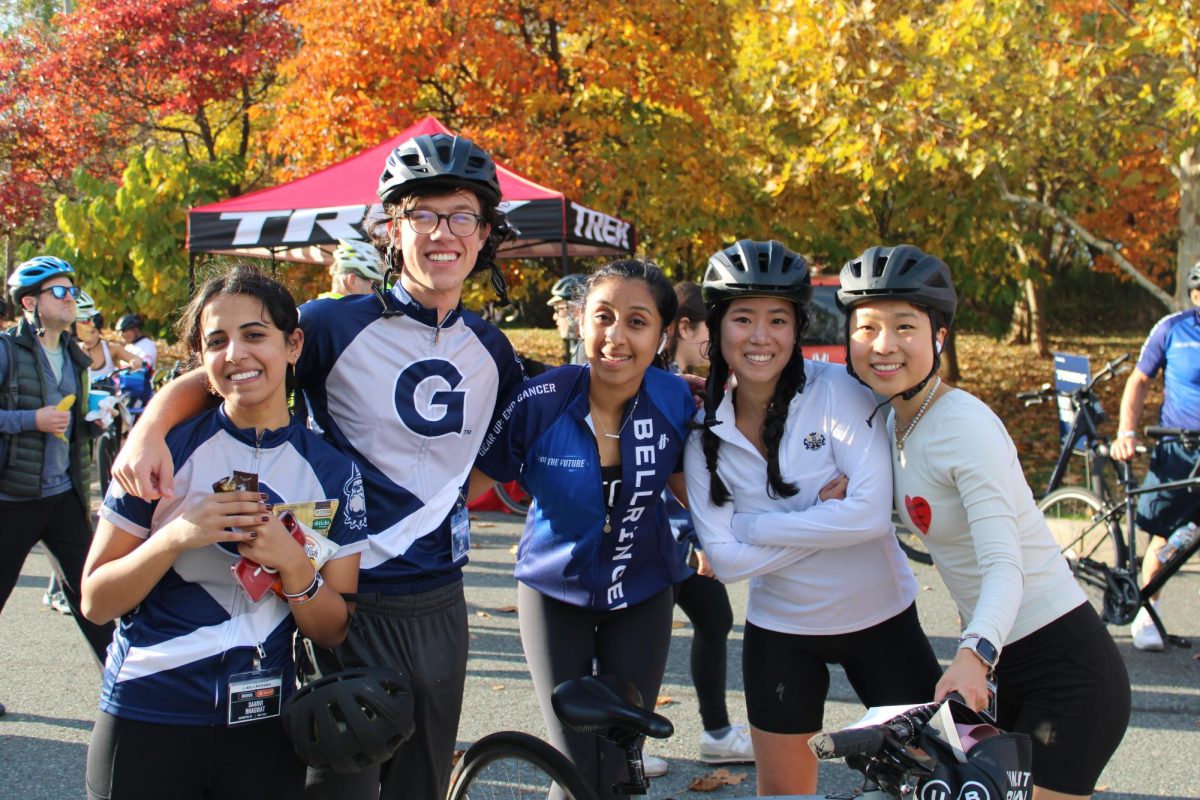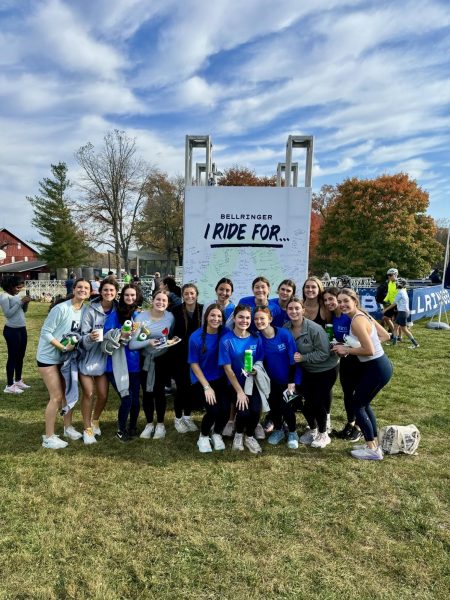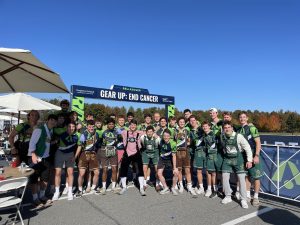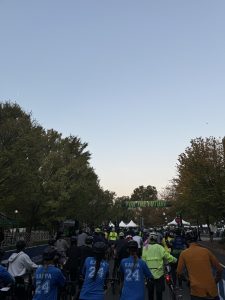
Courtesy of BellRinger | BellRinger, an annual event where individuals and teams bike to raise money for cancer research, raised over $1.5 million Oct. 26.
BellRinger, an annual event where individuals and teams bike to raise money for cancer research, raised over $1.5 million Oct. 26.
1167 riders and 151 teams of Georgetown students, faculty, staff and supporters biked 25, 50 or 100 miles, with 100% of proceeds going to the Lombardi Comprehensive Cancer Center, a cancer research center at the Georgetown University Medical Center. Student groups raised over $250,000 this year, with each student committing to raise at least $500 in funds from family, friends and supporters.
BellRinger has raised over $4.28 million since the fundraiser’s founding in 2022 and will continue to collect proceeds for the research of cancer risk factors and prevention strategies until Dec. 31.
Louis Weiner, director of Lombardi Cancer Center, said the BellRinger’s proceeds will help fund the recruitment of new faculty members in the field of cancer research.
“What we do is we use it to support the recruitments of new faculty members, and so the new faculty members for cancer research are doing world-class cutting-edge therapy,” Weiner told The Hoya.
“Every time the pedal turns someone gets cured,” Weiner added.
Three student groups – Georgetown Kappa, a sorority run by Georgetown students; Sigma Phi Epsilon (SigEp), a fraternity run by Georgetown students; and The Corp, a student-run coffee chain at Georgetown University – raised over $113,000 collectively.

Georgetown Kappa raised over $46,000, which was the highest amount raised out of all 151 teams, and also had the largest group of volunteers. SigEp raised over $35,000, which was the second-highest amount of funds raised by a team, and The Corp raised over $30,000, which was the third-highest amount raised.
Ella Braunfeld (SFS ’25), co-coordinator of Team Georgetown Kappa, said that she rode in BellRinger to honor her mother, who passed away from cancer last summer.
“My mom had a really rare aggressive form of cancer seven or eight years ago now, Ewing sarcoma, she had in her 40s,” Braunfeld told The Hoya. “She battled and fought, and actually this past summer, she passed away.”
“I really just wanted to do it in honor of my mom,” Braunfeld added.
Satchel Kim (SFS ’25), vice president of philanthropy for SigEp, said the team effort involved in BellRinger has become an important tradition of social good.

“If you look at the roster, most of the guys have raised almost double what they need to, which really is a testament to how much people care,” Kim told The Hoya. “They really put a big effort into fundraising and it’s an important cause for us.”
Braunfeld said BellRinger illustrated the importance of community with everyone who joined the ride.
“Community is the first word that comes to mind,” Braunfeld said. “I had a lot of girls tell me how much it meant to them for riding in it because so many people’s lives are affected by cancer.”
Braunfeld said that the last stretch of the race was especially moving because riders could see signs of personal stories along the last mile. She added that the cure for cancer is something that truly takes a team effort.
“At the end of the final mile of the race, Bellringer puts down signs of people sharing their stories. Why they’re riding, you have survivors riding and that just really makes you realize what you’re doing this for and how it’s going to take a team,” Braunfeld said. “God knows how many to really defeat and end cancer.”

Elizabeth Martin (CAS ’27), who rode for Team Theta, a sorority run by Georgetown students, said that she found it significant how many students took time out of their busy schedules to ride for cancer research.
“I know for me, this Saturday is in the middle of a swarm of chaos, so it’s really cool to see people taking time out of what is a very stressful and overwhelming time to dedicate a day to something completely outside of that and outside of their own benefit,” Martin told The Hoya.
Leila Mahdavi (MED ’27), a BellRinger fellow and medical volunteer for BellRinger, said she wanted to contribute to BellRinger’s cause of cancer research because of how cancer has impacted her and the community.
“I think everybody has something personal with cancer, I think everybody knows somebody or, themself, is affected by cancer,” Mahdavi told The Hoya. “When I was doing the first year, I had a family member die from cancer and that really affected me emotionally and mentally.”
Braunfeld said that cancer research is significant to her because of how it can give individuals a chance to live longer.
“The former cancer my mom had, it had such a low survival rate of 25 years ago, but it was because of the research done that she was able to have seven years left to live — so it’s not even about for me the cure, the end goal, it’s about getting a couple years,” Braunfeld said.